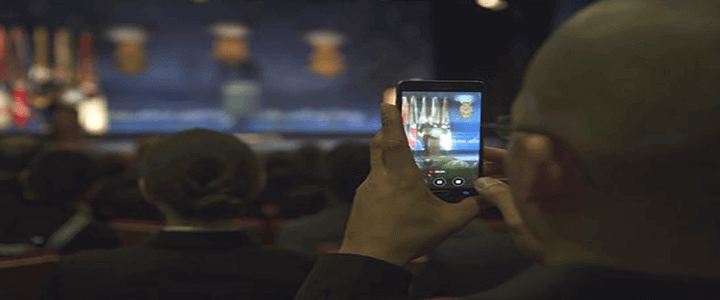Cleared professionals already know from endless cycles of information assurance and operational security training not to use a cell phone for sensitive discussions, especially when traveling. But as the Department of Homeland Security revealed this week, it might be a good idea not to have those kinds of conversations in the nation’s capital as well.
In a March 26 letter to Sen. Ron Wyden (D-Ore.) made public this week, the Department of Homeland Security revealed that foreign governments are using devices known as International Mobile Subscriber Identity catchers to intercept cell phone conversations in Washington.
cellphones Stung by the Stingray
The devices are often just called Stingrays, after the most popular of the commercially available models. Legally available to local, state, and federal law enforcement, these devices trick cell phones into thinking they’re legitimate cell towers, routing a call through the device where the operator can monitor the conversation. Law enforcement uses them for legal surveillance.
We now know that foreign governments, and perhaps other “malicious actors,” have been operating these devices in and around Washington. The DHS National Protection and Programs Directorate has “observed anomalous activity in the National Capital Region (NCR) that appears to be consistent” with the use of the devices.
Such use, the DHS points out, is unlawful and constitutes a threat to the “security of communications, resulting in safety, economic, and privacy risks.” As the Associated Press reported, modern cell phone calls are encrypted, but these devices can force them to revert to “2G” mode, which is unencrypted, allowing the operator to intercept the call.
So who are the suspects?
DHS told Wyden that it had not “attributed such activity to specific entities or devices.” But it doesn’t take Sherlock Holmes to figure out who the prime suspects are.
The Russian embassy, at 2650 Wisconsin Ave. NW is just blocks from the entrance to the Vice President’s residence at the Naval Observatory. The amount of cell phone calls made by staffers and off-duty security officers must be staggering. With the amount of hacking we know they’ve been up to, and their information operations designed to undermine our faith in our own institutions, there can be little doubt that the Russians are running these devices.
The Chinese embassy is just a few blocks south from there at 2201 Wisconsin Ave. Its property actually borders the Naval Observatory. Like the Russians, the Chinese have a robust cyber program aimed at infiltrating the networks of government and American industry. And China’s blatant theft of American industrial intellectual property is one of the stated reasons for the president’s recent tariff actions.
But it’s not just adversaries; our allies are probably using these devices, too. I have little doubt that the British, French, German, Australian, and Israeli embassies in particular have put the Stingray to use to gather intelligence on both our common adversaries and our allies alike.
Spies do what spies do. They will use every technology available to obtain valuable information. But until DHS answered Wyden’s questions, most Americans were only worried about the National Security Agency gathering their metadata, or maybe listening in to their conversations. Now, you can be fairly certain that if you’re close to one of the hundreds of embassies in Washington, or likely near consulate in other cities, someone is listening to your conversation, just in case.
Let’s be careful out there.


